
Stephen Ornes has been writing for Science News Explores since 2008, and his 2014 story "Where Will Lightning Strike?" won an AAAS/Kavli Gold Award. He lives in Nashville, Tenn., and he has three children, who are inventing their own language. His family has a cat, six chickens, and two rabbits, but he secretly thinks hagfish are the most fascinating animals. Stephen has written two books. One is a biography of mathematician Sophie Germain, who was born during the French Revolution. The other, which was published in 2019, features art inspired by math. Visit him online at stephenornes.com.

All Stories by Stephen Ornes
-
 Materials Science
Materials ScienceA beautiful blue butterfly wing offers a new way to study cancer
Once a morpho butterfly wing is placed atop a thin slice of tissue, shining polarized light through it can help reveal how likely breast cancer is to spread.
-
 Space
SpaceThe universe: How will it end?
The Big Bang likely brought our universe into existence. What will mark its grand finale? Scientists blend imagination and data to make predictions.
-
 Planets
PlanetsSo many wondrous moons — just a spaceship ride away
Scientists are studying extraterrestrial moons for clues to how planets form, how life began — and whether there’s life out there right now.
-
 Tech
TechLasers help put the cork on spilled oil
Treating cork with lasers made the material able to quickly sponge up oil while repelling water, scientists in China and Israel found.
-
 Tech
TechLaser-based tech can identify illegal elephant ivory
Most elephant ivory is illegal to sell. Ivory from extinct mammoths isn’t. They look similar, but lasers can tell the difference to help catch poachers.
-
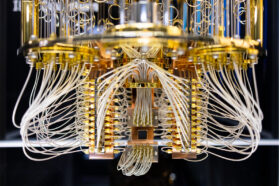 Physics
PhysicsHere’s why scientists want a good quantum computer
These machines could tackle big problems in climate, medicine and more. But the tech is still in its infancy — and runs on truly strange physics.
-
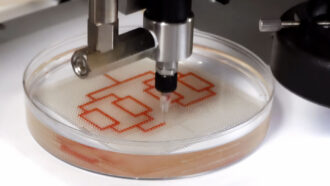 Tech
TechLego bricks inspired a new way to shape devices for studying liquids
Inspired by Lego building blocks, the approach could enable design of adaptable tools to study how fluids move through very small spaces.
-
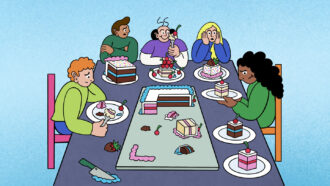 Math
MathCake-cutting math offers lessons that go far beyond dessert plates
As a way to study how to fairly share a limited resource, cake-cutting can inform splitting up chores, drawing fair voting districts and more.
-
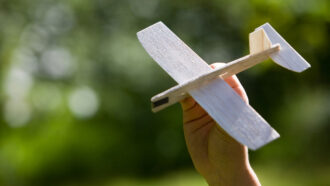 Tech
TechBalsa wood transistors could usher in ‘greener’ electronics
Researchers in Sweden coaxed wood to conduct electricity, then used it to make a climate-friendlier building block of electronics.
-
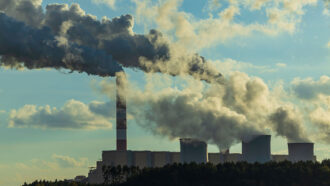 Tech
TechEngineers cook up a new way to tackle CO2: Make baking soda
Engineers have found a material that can collect carbon dioxide from the air. When later mixed with water, it forms baking soda that can be shed in the sea.
-
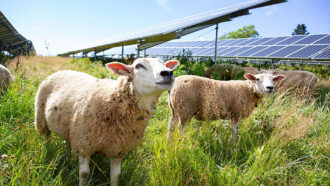 Tech
TechWith tech, farms can double up to produce both food and power
Agrivoltaics merges agriculture with photovoltaic panels, which generate electricity from sunlight. The combo produces clean energy and edible crops.
-
 Tech
TechGravity ‘batteries’ might help a weighty renewable-energy problem
To store the energy generated by wind and solar power, researchers are looking at mammoth systems that raise and lower weights.